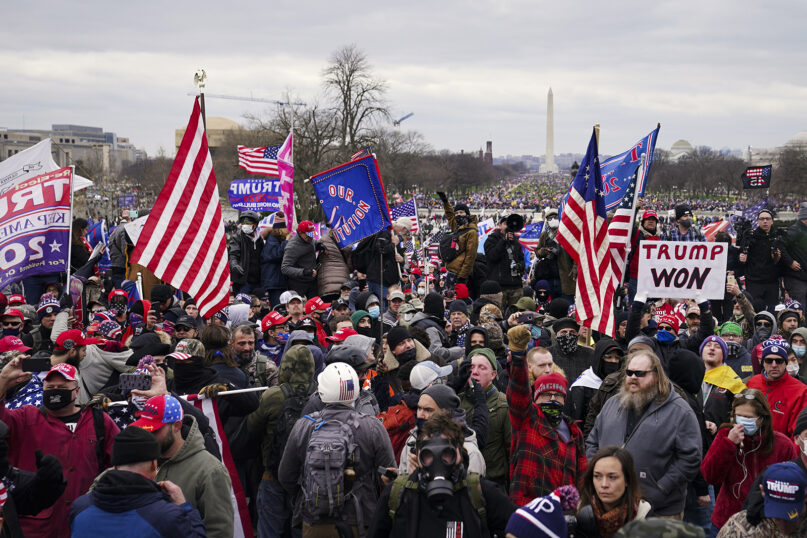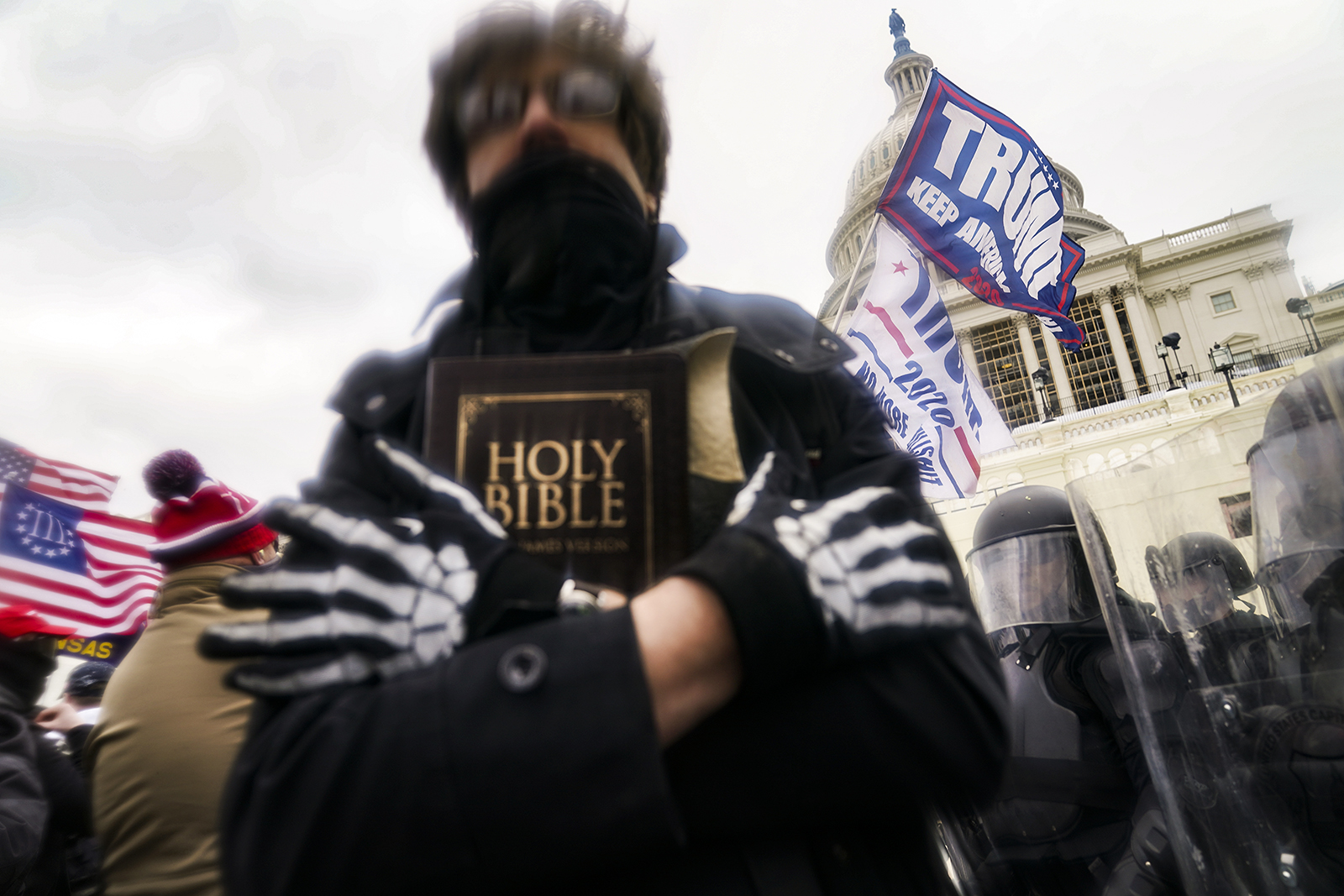Evangelicals must denounce the Christian nationalism in Capitol riots
It’s more important than ever for evangelicals to recognize the dangers associated with mistaking our fear for faith — and our faith for politics.

(RNS) — The startling events in Washington on Wednesday (Jan. 6) were shocking to watch, not only for the scenes of unlawful rioters in the U.S. Capitol, but also for the sight of people waving flags and crosses in the name of Jesus and President Donald Trump. It was another brazen step for some who have harmfully traded in steadfast Christian ideals for a false white Christian nationalism.
As evangelicals, we must recognize, confess, and lament our role in allowing Christian nationalism to fuel these kinds of actions.
According to social science studies we’ve conducted, fear is a likely answer to why some evangelicals have accepted a politically driven gospel substitute, one that runs contrary to the teachings of Christ. Part of what we saw in the riots were Christian nationalists lashing out against people they perceive as “outsiders” or “different” from themselves because of their sense of insecurity.
RELATED: Taking the white Christian nationalist symbols at the Capitol riot seriously
Studies have shown that when groups feel threatened, in-group and out-group differences are more likely to be inflated. Though social psychologists have discovered this is a common mode of self-protection, it is associated with higher levels of anxiety, bias, prejudices and tribalism. It too often scapegoats those — like refugees and immigrants — whom Christians have a biblical call to care for. But understanding the causes of what happened is not enough. Too many evangelicals have accepted or turned a blind eye to a movement fueled by misinformation and lies.
What happened in the Capitol building was a culmination of these lies.

A Trump supporter carries a Bible outside the Capitol on Jan. 6, 2021, in Washington. (AP Photo/John Minchillo)
Supporting or staying silent about Christian nationalism is damaging not only our democracy but the testimony of the church. Influential evangelical pastor Tim Keller shared: “For Christians just to completely hook up with one party or another is really idolatry. … It’s also reducing the Gospel to a political agenda.” This week, it finally led to chaos in our halls of governance.
In a climate of fear and misinformation, evangelicals need to be committed to acquiring and sharing the best information available. As people who follow the one who said of himself, “I am the way, the truth, and the life,” we need to commit to seeking truth and rejecting lies, even, and maybe especially, when it is inconvenient.
As evangelicals we must respond by praying, speaking and acting in ways that testify to the hope and faith to which we hold in Christ — not in a leader or political party. We must speak out against not only today’s riots but also against the related ideologies, beliefs, hatred, racism, fear-mongering, misogyny, bigotry, white privilege, xenophobia, oppression and other injustices. We need to be rebuking a dynamic in which biblical fundamentals are being so clearly compromised.
RELATED: How the shofar emerged as a weapon of spiritual warfare for some evangelicals
Don’t get us wrong: By no means are we suggesting evangelicalism is equal to Christian nationalists. Being evangelicals ourselves, we know it is possible for evangelicals to hold a deep spiritual commitment to Christian faith and still hold wildly divergent political convictions and vote differently.
But all evangelicals need to ask if our actions are furthering unity or division, as exhorted by the Apostle Paul in his Letter to the Ephesians: “Make every effort to keep the unity of the Spirit through the bond of peace.” Our unity must affirm Christ’s call for us to love our neighbors, including those with whom we disagree. Scriptures should lead us to regularly care for the widow, the orphan, the hungry, the migrant, not hate our neighbors.
Regardless of our politics or who holds political office, let us not forget, as the Gospel of John teaches, that our ultimate hope rests in God’s kingdom and is misplaced if given to Caesar.
(Jamie Aten is founder and executive director of the Humanitarian Disaster Institute at Wheaton College. Follow on Twitter at @drjamieaten or visit jamieaten.com. Kent Annan is director of Humanitarian & Disaster Leadership at Wheaton College. Follow on Twitter at @kentannan or visit kentannan.com. The views expressed in this commentary do not necessarily reflect those of Religion News Service.)
No comments:
Post a Comment